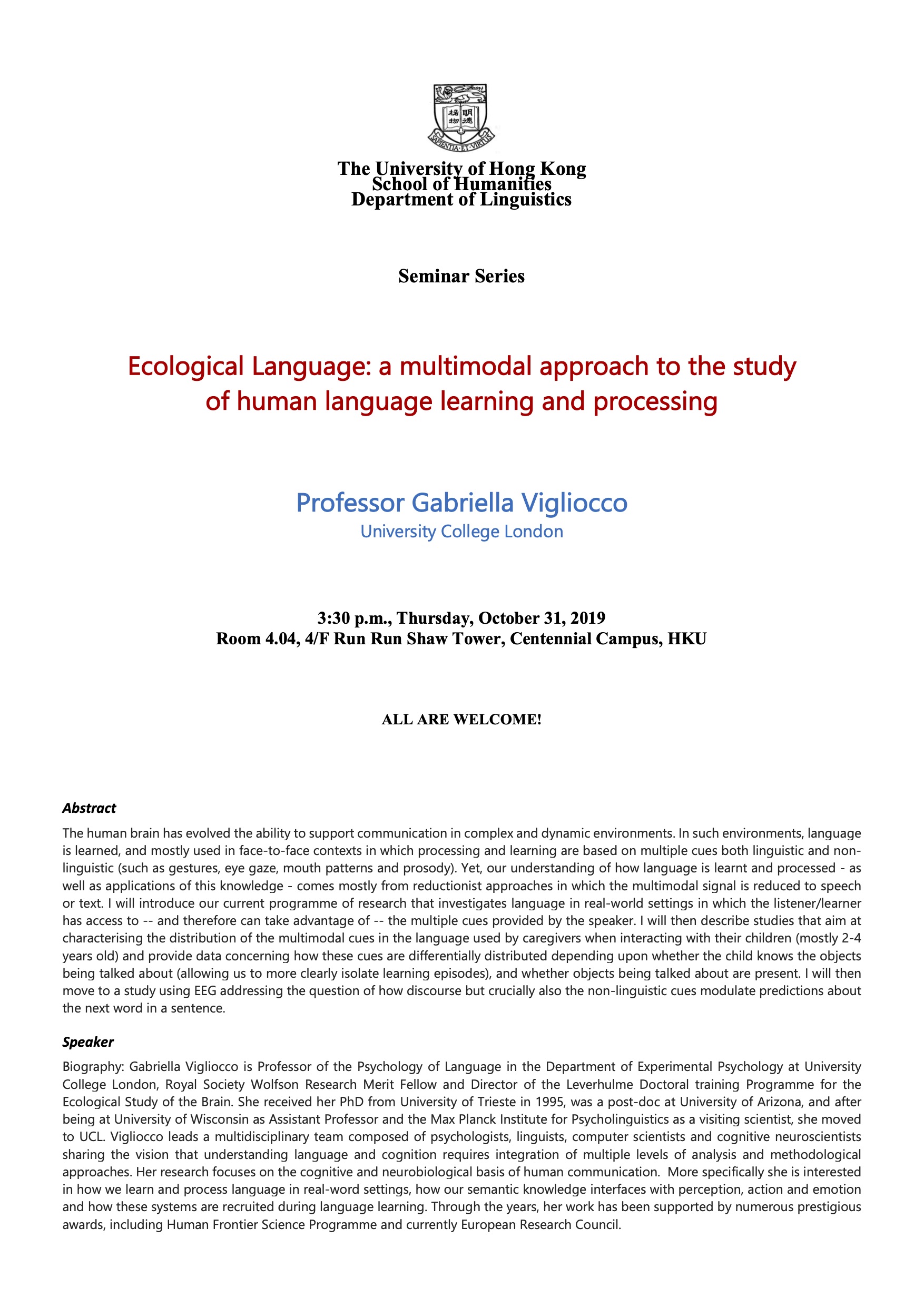

Ecological Language: a multimodal approach to the study of human language learning and processing – Gabriella Vigliocco, University College London
October 31, 2019 @ 3:30 pm - 5:00 pm
Title: Ecological Language: a multimodal approach to the study of human language learning and processing
Abstract: The human brain has evolved the ability to support communication in complex and dynamic environments. In such environments, language is learned, and mostly used in face-to-face contexts in which processing and learning are based on multiple cues both linguistic and non-linguistic (such as gestures, eye gaze, mouth patterns and prosody). Yet, our understanding of how language is learnt and processed – as well as applications of this knowledge – comes mostly from reductionist approaches in which the multimodal signal is reduced to speech or text. I will introduce our current programme of research that investigates language in real-world settings in which the listener/learner has access to — and therefore can take advantage of — the multiple cues provided by the speaker. I will then describe studies that aim at characterising the distribution of the multimodal cues in the language used by caregivers when interacting with their children (mostly 2-4 years old) and provide data concerning how these cues are differentially distributed depending upon whether the child knows the objects being talked about (allowing us to more clearly isolate learning episodes), and whether objects being talked about are present. I will then move to a study using EEG addressing the question of how discourse but crucially also the non-linguistic cues modulate predictions about the next word in a sentence.
Speaker: Professor Gabriella Vigliocco, University College London
Biography: Gabriella Vigliocco is Professor of the Psychology of Language in the Department of Experimental Psychology at University College London, Royal Society Wolfson Research Merit Fellow and Director of the Leverhulme Doctoral training Programme for the Ecological Study of the Brain. She received her PhD from University of Trieste in 1995, was a post-doc at University of Arizona, and after being at University of Wisconsin as Assistant Professor and the Max Planck Institute for Psycholinguistics as a visiting scientist, she moved to UCL. Vigliocco leads a multidisciplinary team composed of psychologists, linguists, computer scientists and cognitive neuroscientists sharing the vision that understanding language and cognition requires integration of multiple levels of analysis and methodological approaches. Her research focuses on the cognitive and neurobiological basis of human communication. More specifically she is interested in how we learn and process language in real-word settings, how our semantic knowledge interfaces with perception, action and emotion and how these systems are recruited during language learning. Through the years, her work has been supported by numerous prestigious awards, including Human Frontier Science Programme and currently European Research Council.
